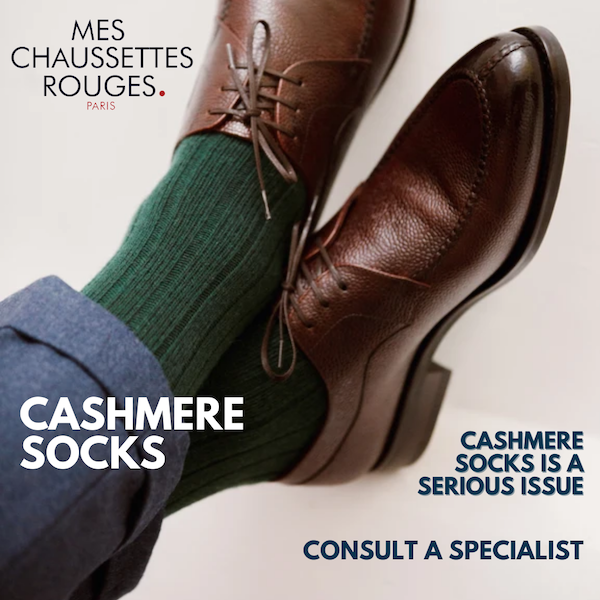I am not a gentleman. Or if I am, it has nothing whatever to do with what I wear.
I get increasingly frustrated with the peddling of the idea of the ‘gentleman’ as a vehicle to sell tailoring. Everywhere you go, fashion brands push this bizarre association, usually accompanied by images of confident, laughing men in tuxedos.
There is no necessary connection between what a man wears and his gentility.
Gentility can imply a refinement in many things, from manners, to morality to culture. It may also involve a refinement in clothing – but it does not have to. And the idea that smart clothing directly suggests something about a man’s ethics is absurd.
This would all be pretty funny, if it wasn’t so depressingly ubiquitous.
In menswear magazines around the world, we are presented with the same images of brooding men, sipping whisky, puffing cigars, surrounded in a cheap and frankly misogynistic way by submissive women.
In fact, that might be the worst aspect of it all. For the lifestyle, the morality and the culture we are presented with are deeply suspect. To be a gentleman, we are told, is to be a rich, famous, womanising drunk.
Where is the celebration of other aspects of life? Physical achievement, as seen in stamina and suffering. Or the creativity and originality of intellectual achievement, .
It may turn out that refinement in life is best encapsulated by a yoga teacher with a wife and two kids, who cycles to work. But of course that would sell fewer sports cars.
If I see another perfume ad where a smirking man walks away from a prone woman on a bed, puts on his shirt in slow motion, and sips a drink while staring out of his balcony window, I will shoot someone.
Please, let’s have enough of this celebration of shallow pleasures and hollow conquests.
Life is a lot more interesting.
































Simon
One of your best articles. Absolutely spot on. Being well dressed does not automatically imply gentlemen. Manners comes ahead of clothes any day of the week!
Don’t shoot anyone, Simon!
Who wrote this?
Uh, me…
Wonderful piece.
Dear Simon,
Thank you for the comments contained in “I am not a Gentleman.” I have been enjoying PS for rather a long while, but today I became a true fan.
– jwp
Brilliant, and thank you.
I believe this goes hand in hand with the philosophy of being comfortable in what you wear. A relaxed confident man in jeans and t-shirt will always look better than someone uncomfortably tugging at the collar of a fitted shirt.
No amount of marketing and spend on clothes will make me a 20 year old androgynous Caucasian.
Amen.
Thank you for saying this. Being a refined individual has much more to do with the attitude and behavior than with attire.
Best Regards,
Heinz-Ulrich von B.
I couldn’t agree more with this post, it seems now that the ideal of a gentlemen is James Bond (the original Fleming version). The 007 fetishisation of brands that define themselves as masculine puts me off them.
As you say being a “Gentleman” is far more than just wearing certain brands, and bespoke suits. It’s a state of mind. To me it’s about an appreciation of the world around us, and striving to do our best in any given field. Of course manners and how we treat people weighs heavily as well. There are many ways to define success other than the size of a bank account, the clothes a man wears, the beauty or youth of his wife, the car he drives or the watch he has on his wrist.
One final though, a certain instrgram star advertises his life often with the text #gentlemen. To butcher a Mrs T quote. Perhaps if you have to tell someone you are a gentleman, you are not.
Beautifully written and i agree with every word of it.
Reminds me of the renegade Afro-beat king Fela’s song: ‘gentleman.’
I can only say: hear, hear, …
Absolutely dead right! And if you find it necessary to shoot someone I’ll be your loader.
Dear Simon; Congratulations…
I am reading you since more three years ago and to me this is the one that I liked more.
Kind regards and please… write more about Philosophy…
Best,
Nice. Very different in style from the way in which you normally write.
Thanks. I have written pieces like this consistently over the years, though perhaps not for a few months
You’re right, of course, although a recent study showed that people behave and think differently when wearing a suit (http://www.theatlantic.com/business/archive/2015/04/wearing-a-suit-makes-people-think-differently/391802/)
Clearly dressing well does not make you a better person (or a gentleman) but perhaps there is something laudable about taking care of your appearance and showing respect for occasion?
Absolutely
Great post Simon.
I don’t teach yoga but I do have a wife, two kids and cycle to work.
OK, so you’re having a go at marketing, that’s OK you’re allowed and frankly if that was all that’s wrong with marketing as it is practised today I would be pleased. However, in defence of marketing communications, we need to remember where western society has arrived at in 2015 and understand the target markets at whom advertisers are aiming the products that feature in the ads you have focused upon, markets that they see as being focused on image and, perhaps, personal pleasure – markets that are on that basis pretty shallow (and probably relatively young). This blog, I would think, appeals to a group of more thoughful readers who have developed a personal values system that translates image in a different way, that is as interested in the story as the look and that is, accordingly, outside the target market that the advertisers are trying to win over. That is not to say that readers don’t spend as much it’s just that they are more choosy, more likely to be repeat cusomers for ‘favourited’ suppliers and for certain products unlikely to be part of the big brand opportunity. The big challenge for advertisers going forward is to recognise a post austerity rebirth of socialism across Western Europe and with it the need to change the message as it is delivered. When that’s done, Simon, advertising may be more to your (and our) taste (I say that hopefully). Well….someone did say they wanted more (pseudo)philosophy!
The gorgeous jacket at Lanvin was beautifully flannel, silky as well as substantial. The color was one I associated with Labrador retrievers–golden, with rich lights among the folds. You see such jackets advertised in Vanity Fair and the other fashion slicks, and they’re usually modeled by unshaven toughs with the look of rough trade or of downright rapists who have nothing–but nothing–to do, other than being seen in all the glory of their dirty narcissism.
– Saul Bellow, Ravelstein
You’re absolutely right, of course, although there was a recent study published in The Atlantic that showed people behave and think differently when wearing a suit (the site won’t let me post the link but you can Google it.)
Clearly dressing well doesn’t make you a better person (or a gentleman) but perhaps there is something laudable about taking care of your appearance and having respect for occasion?
Ever see the movie “Crazy people”?
Crompton gets mad. A thoroughly out-of-character, thoroughly enjoyable rant.
Interesting that people think it’s out of character. I used to write far more like this when I stated the blog. Perhaps I should do more
I would argue that it is, based on my reading of the blog over the past few years. I don’t remember other posts like this. Very good though.
https://www.youtube.com/watch?v=iMJjigut08A
Oh dear…
He didn’t brush his teeth………….
Simon, brilliant writing, spot-on criticism, and I see where it came from – the advertising you mention makes me positively sick. And I agree with all your points but one. I think your ‘targets’ i.e. the lifestyle you criticise has little to do with gentlemanliness and much more with the ‘yuppy’ culture or whatever it should be called. The contemporary idolatry and wrongful identification of a rich ‘businessman’ with gentleman (no offence implied, I simply lack more precise terms). A very nice definition of what a true gentleman is was given by you in an earlier piece (suggested below this one): http://www.permanentstyle.com/2012/05/the-pleasures-of-a-gentleman.html. Kerp writing posts like these two, you gentleman you 🙂
Bravo Simon! There are moments within your writing where you express an idea or philosophical principle with a clarity that should be applauded. As others have indicated similar pieces would be welcomed – even if they stir debate. The Bond/Hefner prototype (upon analysis that of a pleasure seeking psychopath) for the Boomer generation was nothing more than a myth – the ultimate result being an empty, lonely existance. Fleming points to this in the last Bond novel (Octopussy and The Living Daylights) where, effectively, he is washed up. Beyond the false image of what a ‘Gentleman’ is it’s also worth considering the issues of race, celebrity and age (and sexualisation) in modern media…the corporate ‘dreams’ being sold through Global advertising increasingly belie modern nightmares.
Hi Simon,
I greatly appreciate this post!!! It was unexpected but welcome!
Thanks!!!
John
The supposed attributes of a gentleman as defined in modern style magazines or in marketing pieces seem to be almost the opposite of the traditional definitions, nebulous as they were; in the Victorian era the serial seducer would have been a cad, not a gentleman. For Cardinal Newman it was “almost a definition of a gentleman to say that he never inflicts pain”, although Oscar Wilde was to twist this into the epigrammatic “a gentleman never offends unintentionally”. One of the problems with the internet sites devoted to “classic’ menswear (PS excluded of course) is that they can fetishize clothes that have been almost entirely divorced from their social context (“all dressed-up and nowhere to go but the internet” as someone put it). Similarly, the notion of the “gentleman” seems to have been reduced to a series of empty codes, with little relationship to their original social and ethical context.
Michael Alden, as best I recall, wrote somewhere on the London Lounge that a gentleman [essentially] puts people at ease in one’s presence. It’s the best definition I know.
Toward that end, of course clothes matter. Can a gentleman show up in a pantsuit or pajamas outside of LA and be taken seriously?
Of course clothes make the gentlemen. Embrace it.
I’d estimate clothing make about two percent of the putting people at ease. Treating everyone respectfully at least 25 times that.
No bespoke suit or G&Gs would save a man who never greets the janitors or treat female colleagues in a sexist way.
Well said.
Agreed. However, the association between clothing and gentlemanness goes way back. Wasn’t there an old saying, to the effect that a gentleman has his clothing made within a certain distance from Mayfair?
I couldn’t agree more. Fashion suit brands such as Suit Supply for example are the worst for this kind of thing. They always advertise a vain ‘gentleman’ clearly uncomfortable in his high fashioned attire surrounded by mutiple half naked women. I mean come on, how fake do you want to be. This is good enough reason why many men wouldn’t want to wear a suit leisurely. And the whole advertising angle is predictable, dull and boring.
This is a side note: upon reading the comments, I’ve been stunned by the cultural kinship between PS’s readers! And the most surprising thing of all is that they are scattered all over the world, and yet seem to share values off their obvious and well known love for craftsmanship. Frankly, I find this very interesting!
Bringing like-minded people together since 2006…
Thank you.
Great Great article
It perfectly pinpoint the difference between a “cool/good manners” INTELLIGENT-man and an advertising-idea of a “cool/good manners” INTELLIGENT-man, that is not so……..INTELLIGENT.
C S Lewis said it well when he wrote “Mere Christianity” in the ’40s. Back then, the term “gentleman” had already lost its original meaning. What we’ve done is simply to strip off another layer. Said Lewis,
“The word gentleman originally meant something recognisable; one who had a coat of arms and some landed property. When you called someone “a gentleman” you were not paying him a compliment, but merely stating a fact. If you said he was not “a gentleman” you were not insulting him, but giving information. There was no contradiction in saying that John was a liar and a gentleman; any more than there now is in saying that James is a fool and an M.A. But then there came people who said – so rightly, charitably, spiritually, sensitively, so anything but usefully – “Ah but surely the important thing about a gentleman is not the coat of arms and the land, but the behaviour? Surely he is the true gentleman who behaves as a gentleman should? Surely in that sense Edward is far more truly a gentleman than John?” They meant well. To be honourable and courteous and brave is of course a far better thing than to have a coat of arms. But it is not the same thing. Worse still, it is not a thing everyone will agree about. To call a man “a gentleman” in this new, refined sense, becomes, in fact, not a way of giving information about him, but a way of praising him: to deny that he is “a gentleman” becomes simply a way of insulting him. When a word ceases to be a term of description and becomes merely a term of praise, it no longer tells you facts about the object: it only tells you about the speaker’s attitude to that object. (A ‘nice’ meal only means a meal the speaker likes.) A gentleman, once it has been spiritualised and refined out of its old coarse, objective sense, means hardly more than a man whom the speaker likes. As a result, gentleman is now a useless word. We had lots of terms of approval already, so it was not needed for that use; on the other hand if anyone (say, in a historical work) wants to use it in its old sense, he cannot do so without explanations. It has been spoiled for that purpose.”
Fantastic reference, thanks
Per, what a great point referring to the great C.S. Lewis! Simon, this is one of your most timely pieces and certainly my favorite over all the years of the blog! Well said all around!
Simon, you totally rock!!
hear, hear
Simon, your comment about the perfume ad immediately made me think of this striking painting by Gervex, which is being shown at the next big exhibition of the Musee d’Orsay (Splendour and Misery. Pictures of Prostitution, 1850-1910)
http://www.musee-orsay.fr/en/collections/works-in-focus/search/commentaire/commentaire_id/rolla-21517.html?no_cache=1&cHash=7f7d4f8631
This shows a ruined ideal, where despite style, beauty and influence, a young “gentleman” ruins his life through his idle pleasures and even these cannot contain his bitter end. In fact, as the French say: “l’habit ne fait pas le moine” (the clothes maketh not the monk) and style is never a signifier of morals. After all, many of the worst “dictators” throughout history had a very profound sense of style.
Life is indeed worth much more than that. Fine intellect, active compassion and creative beauty can positively enhance the already remarkable beauty of nature and life within.
I’ll fight for that!
Come on guys! We’re allowed to fantasise a little. What should such adverts/ shoots show? An overweight dad in a sharp suit pushing a baby’s pram home from the supermarket? More ethical certainly but do I aspire to change dirty diapers? No! Some advertising is rather cliched but let’s keep a sense of humour about it.
I can’t agree about the sense of taste of dictators. Just look at Peter York’s book on the subject – http://www.amazon.com/Dictator-Style-Lifestyles-Colorful-Despots/dp/0811853144
In this day and age humankind has lost the moral values that has prevailed for many of centuries. In light of this its not strange that today the term “gentleman” is highly misused. Everyday here in Stockholm I see these cars sporting the term “Gentlemen’s club” referring to one of the strip clubs in town. A disgrace to say the least. But what can be expected when people are being fed nothing but misery in the media on a daily basis. Even the strongest minds become affected but this strong downward current. I am a young man being in my early 30s, but I feel really sorry for those in the generations after me to grow up in a time like this. I can only imagine what those a generation older than me think. Alas, we should not despair, for one cannot control others, but only oneself. I therefore salute you for being who you are Simon, and inspiring the rest of us.
If there’s one thing that’s true of every generation it’s the belief that the previous generation was better, purer and subscribed to a stronger moral code. In most cases it’s not true.
What is true is that conventions and sensibilities change. Our parents’ generation may have choked on their tea had they seen a car driving through their city advertising a strip club, but the interest in seeing an attractive young lady remove her clothing was as strong for them as it is for us. It just wasn’t as socially acceptable to talk about it.
That’s not to say we’re better, of course. Over the course of human history each generation has probably had a similarly asshole to saint ratio as any other. Future generations will no doubt behave in ways that astounds and disgusts us, but that’s just the way it goes.
Well put Keith
I agree with you in many ways Keith. However, I do believe that the way things are now, they are way more worse than any time in history. including the last century. In our parents generations there was still morals to talk about, whereas kids today get nothing of the sort. Try working as a teacher for a while, if you haven´t, and you will notice that there is a large gap from when those of us here where young.
The True Gentleman is the man whose conduct proceeds from good will and an acute sense of propriety, and whose self-control is equal to all emergencies; who does not make the poor man conscious of his poverty, the obscure man of his obscurity, or any man of his inferiority or deformity; who is himself humbled if necessity compels him to humble another; who does not flatter wealth, cringe before power, or boast of his own possessions or achievements; who speaks with frankness but always with sincerity and sympathy; whose deed follows his word; who thinks of the rights and feelings of others, rather than his own; and who appears well in any company, a man with whom honor is sacred and virtue safe.
– John Walter Wayland
Reading this was great. It’s a subject that I have been personally pondering a lot about lately and reading this cristal clear explanation was very comforting.
I want to thank you for writing this, as a tailoring business owner I don’t want to feel like I’m contributing to the social anxiety of building an image rather than discovering your “essence”, to the anxiety of aspiring to be someone else rather than accepting and loving the person that you are, of pretending rather than being. You remind me that there is a way and that what we do has nothing to do with that peddling.
Hit the nail right on the head, one of the many reasons why for years now, I’ve stopped taking an interest in the big fashion houses.
I must disagree with this article. Wearing bespoke suits says ‘look at my social value’. You are proving you have money and taste, and have probably been invested in since birth. Your complaining about the adverts is like complaining that peacocks show off their beautiful tails to seduce mates, and that peacocks are shallow or psychotic. yes, the adverts are uninspired, but their job is to get to the essence of making you want to go out and buy expensive clothes that help you look beautiful.
It rings a bit hollow for everybody to say, “oh, I only purchase all these fine extremely highly crafted clothes (which flatter my appearance hugely) only because I respect the materials and the effort that’s gone into it”. If you’re monogamous, good for you, but on a deeper level, sex, money and power are there, in our lizard brains. We invest time making ourselves sexually attractive for a reason, not just to chat with other men who also invest in themselves for that same reason. That seems more pathological to me than what the adverts depict.
Excellent article … some fashion house advertise in a most disgraceful way; thank you for raising awareness
I only read this now, but totally agree. Unfortunately, the media glorifies, in no small way, appearance over substance, and this is a message the permeates our society.
It has resulted in women/girls spending time and money wanting to look like the waifs that appear on runway shows and in magazines, and men/boys believing that loutish behaviour is excusable just because you look good, or are rich, or both.
Being a father, I always strive to communicate the ‘substance over style’ ethos to my young son. After all. He and his generation will inherit the earth someday.
Thanks Arthur
Mr. Crompton, out of curiosity, how would you like menswear ads to look? If you were trying to sell tailoring or menswear, how would you advertise it?
Men have always been interested in being masculine and appealing to women, so I don’t think that will ever really change. As dress has gotten increasingly sloppy over the last half-century, men fear they will be seen as vain, try-hard or effeminate if they dress well. I think the online popularity of sprezzatura reflects this, as sprezzatura is ultimately about dressing well while looking like you aren’t the kind of man that cares how he looks. So is the increasingly ‘James Bond’ kind of advertising. I don’t think you’ll ever get men to stop wanting clothes that make them look masculine, but you could probably do away with the overemphasis on shallow pleasure and playboys.
Good points Sam. Yes, men will always want to appear masculine. But it would be nice to at least have a range of ways to do that – and I think they would be more relatable. A guy on a great racing bike, or looking great playing everyday sports. And perhaps ones that suggest achievements that took some actual effort – I like the campaigns that highlight explorers for example, or similar achievements.
They’re all still fairly cliched, and it would still need to be aspirational probably. But I just find it depressing when every young guy in a suit feels he needs to smoke a cigar or swill a whisky to be cool.
And of course none of this is in any way connected to being a gentleman.